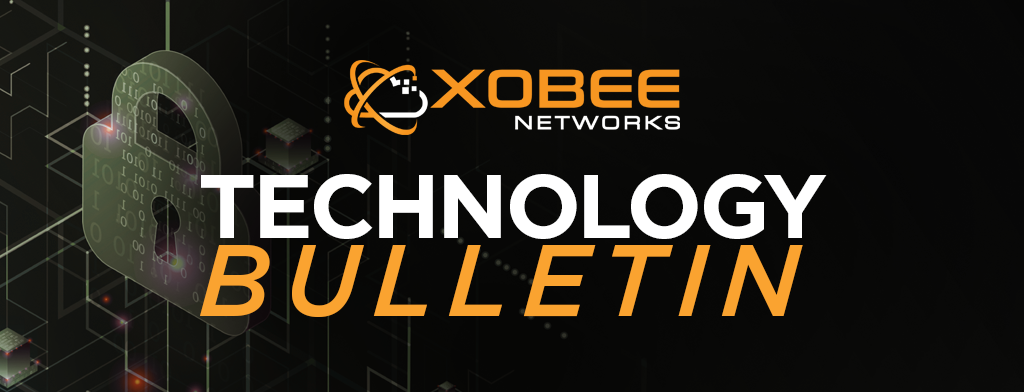
FRESNO, California – Cody Sarhan, Communications Specialist
Social media has become an interconnected part of our lives, for better or worse. It provides us with a way to stay connected in a world that is becoming increasingly less social. However, with its widespread use, and rise to prominence, concerns about data collection and privacy have loomed large. Recent events, including the TikTok court hearing, the launch of Threads, and the rebranding of the artist formerly known as Twitter, have further underscored the urgency of addressing these issues.
We at Xobee Networks want to offer tips on safeguarding your personal information from companies like Meta or X Corp., and platforms such as Facebook, Instagram, and TikTok. By highlighting the growing apprehension surrounding social media data collection, we aim to offer a toolkit to help you stay both aware and protected.
Learn more: How Xobee can help protect your privacy and data
How Big Data Can Be a Big Problem
Social media platforms are designed to encourage users to share their thoughts, experiences, and personal information openly. However, this openness has paved the way for a complex web of data collection mechanisms that often occur unnoticed. Every click, like, share, and comment generates valuable data points that platforms can use to build detailed user profiles, which can then be leveraged for targeted advertising, selling to data brokers, interfere with elections, and other purposes. This isn’t to mention the information users fill out for their bios which can include, age, region, gender, and more.
Data brokers are among the biggest concern when it comes to data harvesting. It’s one thing for a company like Meta to have your data, but when a data broker has purchased your personal and sometimes private information from multiple companies, it can achieve some astonishing things. Take Acurian for example, a company that recruits people for various drug trials on behalf of medical companies. They can employ powerful guesswork based on your data to paint a digital portrait of you and your history with terrifying accuracy.
“We are now at a point where, based on your credit-card history, and whether you drive an American automobile and several other lifestyle factors, we can get a very, very close bead on whether or not you have the disease state we’re looking at” — Acurian’s senior vice president of operations told the Wall Street Journal in 2013.
It’s easy to see how companies can leverage this data to advertisers, solicitors, brands, and more. What is even more scary is the idea of what happens to this data, when a platform like Facebook gets hacked, and how bad actors can weaponize that data for all kinds of nefarious reasons.
— Video Courtesy of CNN Business
TikTok vs User Privacy
In a significant legal battle, TikTok recently found itself in the crosshairs of a court hearing related to data privacy concerns. The Chinese-owned social media giant faced allegations that it had been illicitly collecting and mishandling user data, raising red flags about the potential misuse of personal information. This incident exemplifies the broader problem of social media platforms potentially exploiting user data for their gain, raising questions about the extent to which our personal information is being harvested without our consent.
Meta and its platform Facebook, has been a focal point in the data privacy debate. Its vast network of services and apps enables it to collect an immense amount of user data. The same concerns that emerged with the TikTok court hearing are applicable here, as the line between data collection for customization and data exploitation becomes increasingly blurred.
Protecting Yourself in the Age of Data Collection
While complete avoidance of social media might not be a realistic solution for many, there are steps you can take to protect your personal data and maintain some semblance of privacy:
- Review Privacy Settings Regularly. Social media platforms often update their privacy settings. Make it a habit to review these settings both in the app and on your phone, and adjust them to limit the amount of information you share with the platform and third-party advertisers.
- Mindful Sharing. Think twice before sharing personal information online. Consider whether the benefits of sharing outweigh the potential risks to your privacy.
- Limit Third-Party App Access. Many platforms allow third-party apps to access your data. Be cautious about granting access and revoke it for apps you no longer use.
- Two-Factor Authentication (2FA). Enable two-factor authentication wherever possible to add an extra layer of security to your accounts.
- Regular Log Out. Remember to log out of your accounts when you’re done using them, especially on shared devices.
- Educate Yourself. Stay informed about the data privacy policies of the platforms you use. Being aware of what data is being collected and how it’s being used empowers you to make better choices.
As technology continues to innovate, the concern surrounding social media data collection and privacy remains at the forefront. The TikTok court hearing serves as a reminder that our personal data is a valuable commodity, and it’s crucial to be proactive about protecting it. By staying informed, adjusting privacy settings, and being mindful of what you share, you can strike a balance between enjoying the benefits of social media while safeguarding your personal information from the ever-watchful eyes of these megacorporations.
For more information about how Xobee Networks can help protect your privacy and your data, contact one of our highly skilled technicians today.
Xobee Networks now has engineers servicing clients within Fresno, Clovis, Madera, San Jose, Sacramento, San Francisco & The Bay Area, Los Angeles, Santa Monica, Las Vegas, Bakersfield, San Diego, San Luis Obispo, Anaheim, Palm Springs, and more.
